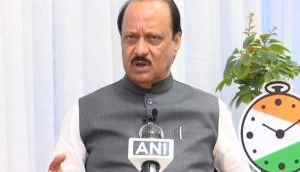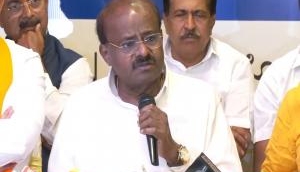
Speaking at the Graduation Day Ceremony of the Muffakham Jah College of Engineering and Technology, the Vice President said India believes in inclusivity wherein every citizen has the same entitlements irrespective of his or her religious leanings.
"Please remember that culture is a way of life and religion is a way of worship. India is a country built on the foundations of a civilisation that is fundamentally tolerant. In India, religious freedom is a fundamental right guaranteed under Articles 25 to 28 of our Constitution," he said.
Naidu said the preamble of the Constitution declares India as a secular nation so as to guarantee every citizen of equality without any discrimination based on religion, though India is predominantly Hindu.
"This Constitutional prescription is nothing but a natural culmination of the core values of Indian civilisation that has evolved over the last 5000 years," he said.
Naidu said that the motto of "Sabka Saath, Sabka Vikas, Sabka Vishwas" has its roots in the core principles of Indian civilization.
Naidu's remarks came days after US State Department's report on International Religious Freedom criticised the Indian government, saying mob attacks, led by violent extremist Hindu groups against the minority communities, particularly Muslims, continued in India in 2018.
The report alleged that some senior officials of the ruling BJP made inflammatory speeches against the minority communities.
In an apparent rejection of the US report, the Vice President said that all through the ages, Indian philosophers, rulers and the modern political leadership have expounded and upheld the principles of equality and tolerance.
"The world can be rest assured that India celebrates its religious diversity by upholding religious freedoms. No other country matches India in respect of such diversity and the commitment to preserve such a colourful mosaic," he said.
Asserting that India was the birthplace of four major religions of the world - namely, Hinduism, Buddhism, Jainism and Sikhism, Naidu said that a significant population of three other religions of the world namely Islam, Christianity and Zoroastrianism live in India.
"Such cohabitation of the people of seven major religions of the world was a testimony to the values of fraternity, equality, assimilation and accommodation that were integral to Indian way of thought and living," he said.
Naidu said that equality of religions observed in all walks of public life in India enabled leaders from minority religions to rise to hold the offices of President, Vice President, Prime Minister, Governors, Chief Justices, Chief Ministers, Ministers, Chief Election Commissioners, Attorney Generals and Army Chief's besides making major contributions in other walks of public life like music, culture, sports, films etc.
He said that certain aberrations like looking at minorities as vote banks might have had some undesirable socio-political ramifications and added that the situation was changing as a new, young and aspirational India was emerging fast.
Naidu said that India was on the threshold of emerging as a major economic power and added that the vision of higher education must be to realize the country's human resource potential to its fullest with equity and inclusion.
"Education is the single most important element in converting our young population into national assets", he said.
-ANI







![BJP's Kapil Mishra recreates Shankar Mahadevan’s ‘Breathless’ song to highlight Delhi pollution [WATCH] BJP's Kapil Mishra recreates Shankar Mahadevan’s ‘Breathless’ song to highlight Delhi pollution [WATCH]](https://images.catchnews.com/upload/2022/11/03/kapil-mishra_240884_300x172.png)

![Anupam Kher shares pictures of his toned body on 67th birthday [MUST SEE] Anupam Kher shares pictures of his toned body on 67th birthday [MUST SEE]](https://images.catchnews.com/upload/2022/03/07/Anupam_kher_231145_300x172.jpg)






